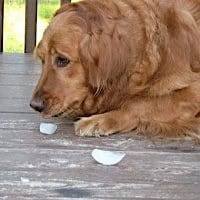Common Veterinary Myths Debunked!
We at Dupont Veterinary Clinic want to make sure that owners are well educated so that they and their pets can live long, happy, and healthy lives together. Here is a list of the most common veterinary myths associated with pet health care.
- A cold, wet, dry, or warm nose indicates something about the pet’s health.
While there may be a few circumstances where a pet’s nose may be able to offer us useful information, most of the time they do not. Veterinarians do not rely on this information at all when taking your pet’s history or performing a physical exam.
- A pet that eats grass outside is sick to his stomach.
While some dogs that have an upset stomach may feel an urge to eat or chew on unusual objects, a dog that eats grass is not always ill. Some dogs simply like to play with grass and chew on it for fun!
- Eating ice cubes or snow kills dogs.
Dogs do not bloat from eating ice cubes, snow, or drinking ice water. In fact, giving them ice water or ice cubes can help cool them down on a hot day. Bloat is most commonly seen in deep-chested, large breed dogs and can be caused by genetics and/or food and gas build up in the stomach. Freezing toys or treats for dogs, especially puppies, to chew on can help to keep them occupied while you are away.
- A dog that scoots his hind end on the ground has worms.
Scooting is usually caused by an impacted or infected anal gland or localized skin infection. Pets can, on occasion, scoot on the ground if they have tapeworms because the segments that they shed on their hind end can be itchy or irritating.
- If my dog is inside a fenced-in yard, or mostly indoors, they cannot be exposed to mosquitoes and contract heartworm disease.
Mosquitoes can get inside fenced-in yards and can even get inside your house; therefore, even mostly indoor dogs need to be on heartworm prevention too. The same goes for fleas and flea prevention as they can hitch a ride on your clothes or shoes and be introduced into your house.
- Grain free or gluten free diets will fix my pet’s allergies.
While there are some dogs that may be diagnosed with a grain allergy, gluten allergies in dogs are exceedingly rare. Dogs can have food allergies or environmental allergies that cause them to have red, irritated, and itchy skin. If you think your pet is experiencing an allergy contact your veterinarian at Dupont Veterinary Clinic to have them examined.
- My dog eats his own feces so he must have a nutritional deficiency.
This statement is simply not true as some dogs find this smelly snack to be a delicacy!
- Dipping your pet in motor oil can cure mange.
There are dips that can be given to bathe pets in to cure mange but motor oil is not one of them. In fact, motor oil can be really harsh on a pet’s skin and coat. If you think your pet has mange, please speak with your veterinarian about the best treatment for them.
- Pets need to lick their wounds in order for them to heal.
Licking a wound is great to clean off debris from a fresh injury, but continuous licking worsens inflammation and infection. This is why E-collars are used. It is especially important to keep pets away from a surgical incision as they can reopen the site and cause a serious infection.
- Sibling pets do not need to be spayed or neutered because they will not mate.
Animals do not have any taboos against this and will mate if given the opportunity.
If you have questions about your pet’s health, give us a call at (260) 637-7676. We are here because we want to help keep your pet healthy and foster the bond your family has with your pet.
By: Dr. Ashley Dawes






